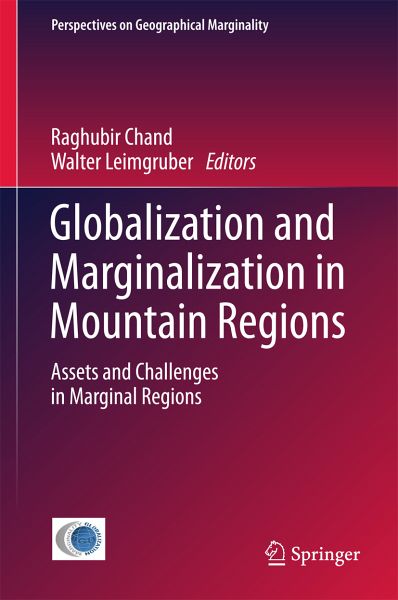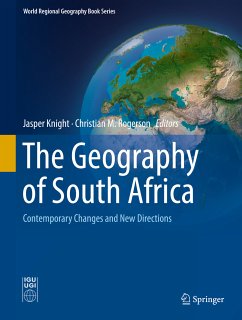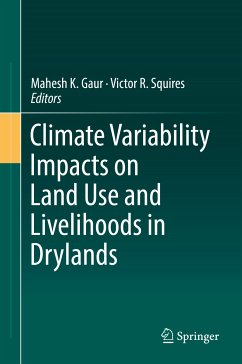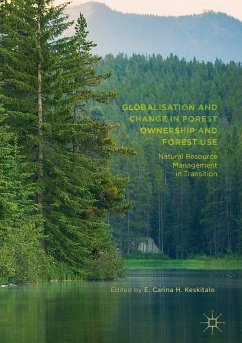
Globalization and Marginalization in Mountain Regions (eBook, PDF)
Assets and Challenges in Marginal Regions
Redaktion: Chand, Raghubir; Leimgruber, Walter
Versandkostenfrei!
Sofort per Download lieferbar
72,95 €
inkl. MwSt.
Weitere Ausgaben:

PAYBACK Punkte
36 °P sammeln!
This book looks at the global importance of mountain systems, emphasizing their ecological and socio-economic role in light of climate change and globalization. With a special focus on the Himalayas, it also examines the Czech-German-Austrian mountain borderland, the Alps, the Andes, the highland regions of Malaysia, and the Arctic. The contributors, specialists in their fields, all use an integrative approach that develops and argues the concept of mountain regions as a global common good. Readers also discover that mountain systems and mountain communities are often marginalized and left beh...
This book looks at the global importance of mountain systems, emphasizing their ecological and socio-economic role in light of climate change and globalization. With a special focus on the Himalayas, it also examines the Czech-German-Austrian mountain borderland, the Alps, the Andes, the highland regions of Malaysia, and the Arctic. The contributors, specialists in their fields, all use an integrative approach that develops and argues the concept of mountain regions as a global common good. Readers also discover that mountain systems and mountain communities are often marginalized and left behind by the process of globalization.
Case studies throughout detail the effects of climate change and global warming on both nature and local/regional societies, such as declining water supplies, a shifting vegetation line, and other important issues facing not only mountains but also the vast regions depending on them. In addition, the comprehensive coverageoffers authenticated viewpoints from some of the most eminent explorers of Tibet in the nineteenth century. More than 50 percent of the global human population draws benefits directly or indirectly from mountain resources and services. This book provides practitioners, researchers, students, and other interested readers with a compelling look at the global importance of this imposing, yet sensitive ecosystem.
Dieser Download kann aus rechtlichen Gründen nur mit Rechnungsadresse in A, B, BG, CY, CZ, D, DK, EW, E, FIN, F, GR, HR, H, IRL, I, LT, L, LR, M, NL, PL, P, R, S, SLO, SK ausgeliefert werden.












